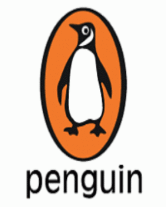Projects, Resources, and Events which can be developed as an outgrowth of CD use.
- Students can develop their own audio cassette versions of classics or favorite contemporary books. They can also write liner notes and develop model projects to go with these works which include some of the model suggested strategies.
- A student radio marathon of student/classic author audio CD collaborative efforts can be run over the school P.A. systems or broadcast in a specific time period over a month festival.
- An interactive multimedia exhibit featuring audio CD-inspired storyboards and written texts of classics can be held.
- Students can use drawing and word processing software to develop animations of audio cassettes or CDs.
- Students can review audio cassettes or CDs on a Radio Review show or write a Listener's Guide to classics of cassettes.
- Students can post schedules of short stories for radio for class discussion and review.
- Dual casting/point counterpoint radio readings or recordings can be made in which different auteurial concepts inform each audio CD of a single classic. Students and adults can discuss the works as part of a library literacy event.
- Students and literacy program participants can collect sound effects, blank audio CDs, classics, and background music to begin their own audio CD production company.
References are indicated by parenthetical capital: Theory of Learning (L) and Classroom use of Audio (A).
Bear, D.R. and M. Invernizzi. 1984. "Student Directed Reading Groups." Journal of Reading 28: 24852 (L)
Gardner, Howard. 1983. Frames of Mind: The Theory of Multiple Intelligences. New York: Basic Books (L) (A)
Gardner, Howard. 1991. The Unschooled Mind. New York: Basic Books (L) (A)
Moffett, James and Betty Jan Wagner, Ed. 1991. Student Centered Language Arts K-12 New Hampshire: Boyton/Cook
Reissman, R. 1992. "An English Teacher's Proposal: Teaching Literature Using audio cassettes or CDs." English Journal 81 (January) 76-76.
Reissman, R. 1989. "The Media Writes Ways to Various Literacies, Both Visual and Cultural." Reading, Writing, and Interpreting Literature. NY:NYSEC (L) (A)
Sloyer, S. 1982. Readers Theatre Story Dramatization in the Classroom. Urbana, Ill. National Council of Teachers of English (L)
Stauffer, R.G. 1975. Directing the Reading-Thinking Process. New York: Harper and Row (L)
ABOUT THE GUIDE AUTHOR
Rose Reissman, Adjunct Professor Teacher Education at Manhattanville College and Magnet Teacher Specialist in Community School District 25 NYCPS, has taught English, Writing, and Media Studies for twenty-two years. Ms. Reissman is a holder of the NCTE Center for Program Excellence Citation for her Writing Institute and is an NCTE Teachers of the Dream Grant Recipient. She is an independent audio show producer who has created, developed, written, and performed radio shows that air over WNYE FM 91.5. She has published several books and articles in English Journal, Notes Plus, The Reading Teacher, Educational Leadership, The Writing Notebook, Ideas Plus, and The Computing Teacher. She received Learning Magazine's Professional Best Award in 1989 and is currently field editor for that publication.






